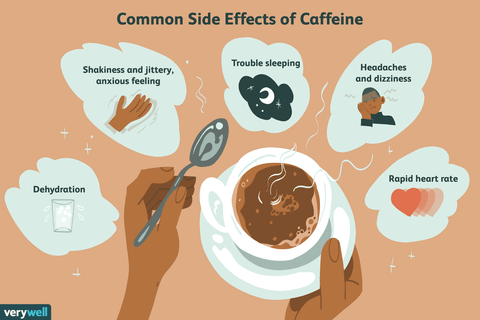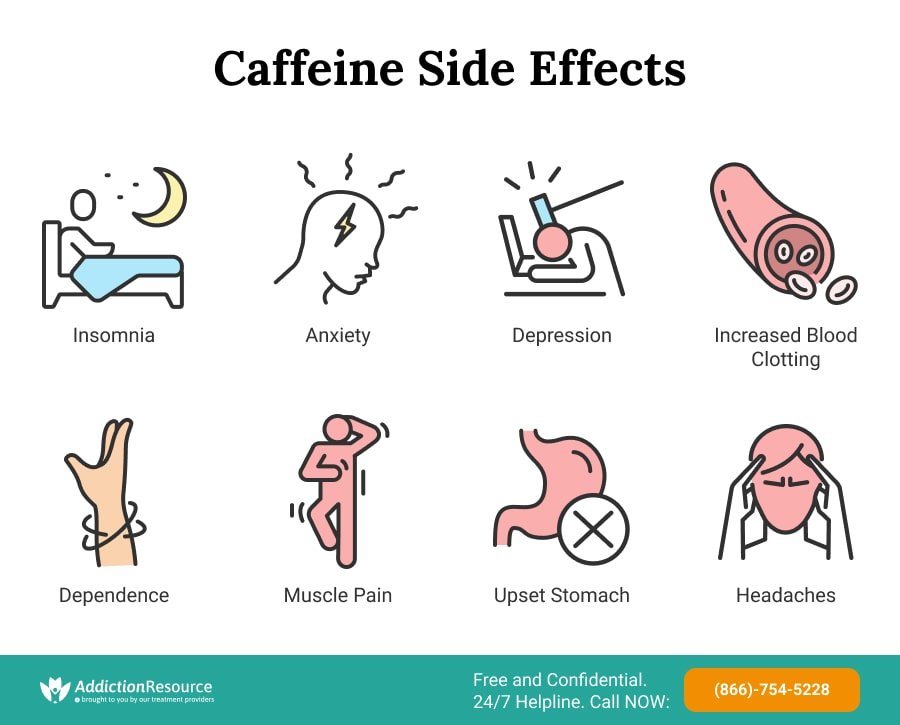Have you ever considered what impact your daily cup of coffee might have on your health? While coffee is a beloved beverage for many, thanks to its rich flavor and invigorating effects, it’s worth taking a closer look at some of the negative effects it can have. This article aims to shed light on the not-so-great aspects of coffee consumption so you can make more informed choices.
The Role of Caffeine in Coffee
Caffeine, the primary active ingredient in coffee, is responsible for many of its stimulating effects. However, too much caffeine can lead to some undesirable outcomes.
How Caffeine Works
Caffeine acts on your central nervous system, primarily by blocking the inhibitory neurotransmitter adenosine. This leads to increased neuronal firing and the release of other neurotransmitters like dopamine and norepinephrine. These changes result in heightened alertness and wakefulness, but also have side effects.
Negative Side Effects of Caffeine
While moderate caffeine consumption is generally considered safe, high amounts can cause various problems:
| Effect | Description |
|---|---|
| Insomnia | Difficulty falling or staying asleep |
| Anxiety | Increased levels of stress hormones |
| Digestive Issues | Stomach upset and digestive irregularities |
| Heart Palpitations | Rapid or irregular heartbeats |
| Dependency and Withdrawal | Caffeine addiction and withdrawal symptoms |
Insomnia and Sleep Disruption
One of the most well-known effects of caffeine is its ability to keep you awake. While this can be beneficial in certain situations, it can wreak havoc on your sleep patterns if consumed too late in the day.
Impact on Sleep Quality
Even if you fall asleep easily after drinking coffee, the quality of your sleep can be affected. Studies have shown that caffeine can reduce the amount of deep sleep you get, leaving you feeling less rested upon waking.
Recommendations for Better Sleep
To improve your sleep, try to cut off caffeine consumption at least 6 hours before bedtime. If you have trouble sleeping, consider reducing your overall caffeine intake.

Anxiety and Stress
Caffeine’s stimulant effects can increase the stress hormones in your body, leading to heightened feelings of anxiety and stress.
Symptoms of Caffeine-Induced Anxiety
Common signs that caffeine is contributing to your anxiety include:
- Jitters or shaking hands
- Rapid heartbeat
- Nervousness and restlessness
- Irritability
Managing Anxiety
If you notice these symptoms, you might want to reduce your caffeine consumption or switch to decaffeinated beverages.
Digestive Issues
Coffee is acidic and can irritate the lining of your stomach, leading to digestive problems.
Common Digestive Problems
Some of the digestive issues associated with coffee consumption include:
| Problem | Description |
|---|---|
| Acid Reflux | Stomach acid moving up the esophagus |
| Ulcers | Irritation of the stomach lining |
| IBS Symptoms | Exacerbation of IBS symptoms |
Reducing Digestive Discomfort
If coffee causes you digestive discomfort, try reducing your intake or drinking it with food. Opting for low-acid coffee varieties can also help.

Heart Palpitations and Cardiovascular Issues
Increased caffeine consumption can lead to cardiovascular problems, particularly in individuals with existing heart conditions.
Effects on Heart Health
While moderate coffee consumption can be part of a healthy lifestyle, excessive amounts can lead to:
- Elevated blood pressure
- Increased heart rate
- Heart palpitations
Monitoring Heart Health
If you experience these symptoms, it may be best to limit your coffee intake and monitor your heart health regularly.
Dependency and Withdrawal
Caffeine is addictive, and regular consumption can lead to dependency and withdrawal symptoms when you try to cut back.
Signs of Dependence
You may be dependent on caffeine if you:
- Feel lethargic without it
- Experience headaches when you don’t consume caffeine
- Find it hard to concentrate without your usual dose
Withdrawal Symptoms
Withdrawal symptoms can include:
- Headaches
- Fatigue
- Irritability
- Difficulty concentrating
Breaking the Caffeine Habit
To break the habit, try reducing your caffeine intake gradually rather than quitting cold turkey. This can help minimize withdrawal symptoms.

Alternative Beverages to Consider
If you’re looking to cut down on coffee without sacrificing your need for a warm, comforting beverage, there are several alternatives worth trying.
Tea
Tea contains less caffeine than coffee and offers various health benefits. Herbal teas are caffeine-free and can be soothing at any time of day.
Herbal Infusions
Herbal infusions like chamomile, peppermint, and ginger offer numerous health benefits without caffeine. They can also aid in digestion and relaxation.
Decaffeinated Coffee
If you love the taste of coffee but want to avoid caffeine, decaffeinated coffee is a good option. It retains most of coffee’s flavor but with significantly less caffeine.
Conclusion
While coffee has its perks, it’s essential to be mindful of its potential negative effects. Whether it’s disrupting your sleep, aggravating anxiety, causing digestive issues, or leading to dependency, being aware of these downsides can help you make more informed choices about your coffee consumption. Remember, moderation is key, and there are plenty of alternative beverages to enjoy if you decide to cut back. So, why not give some of these healthier options a try and see how you feel?

